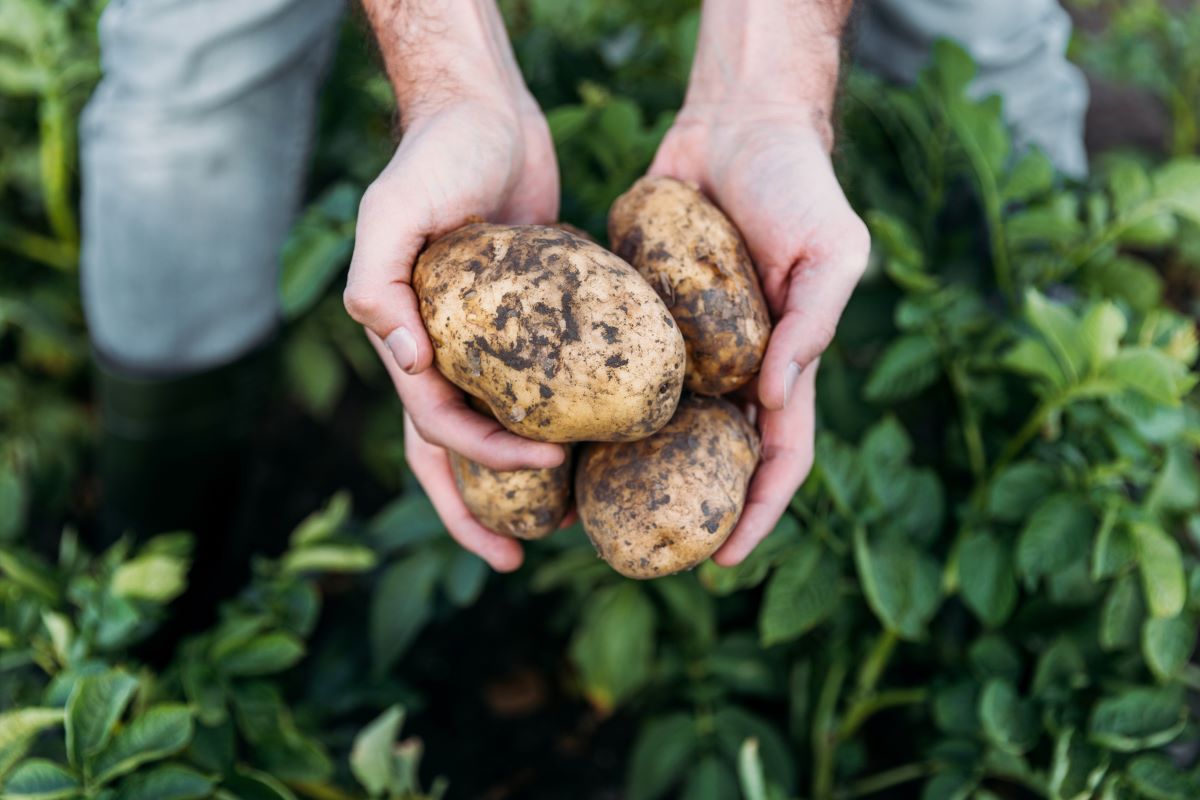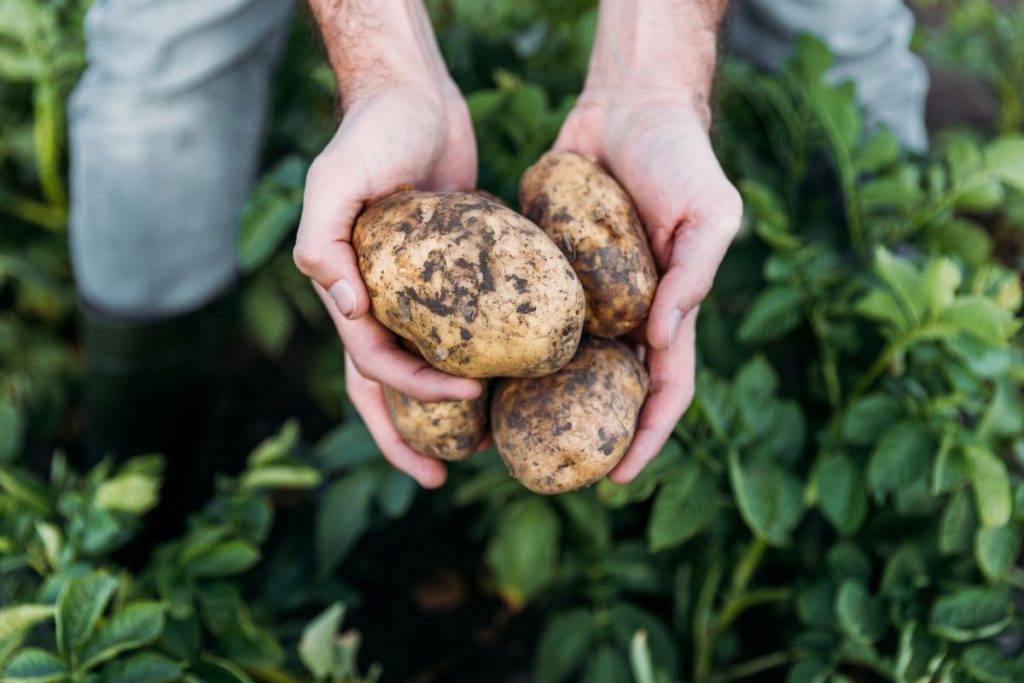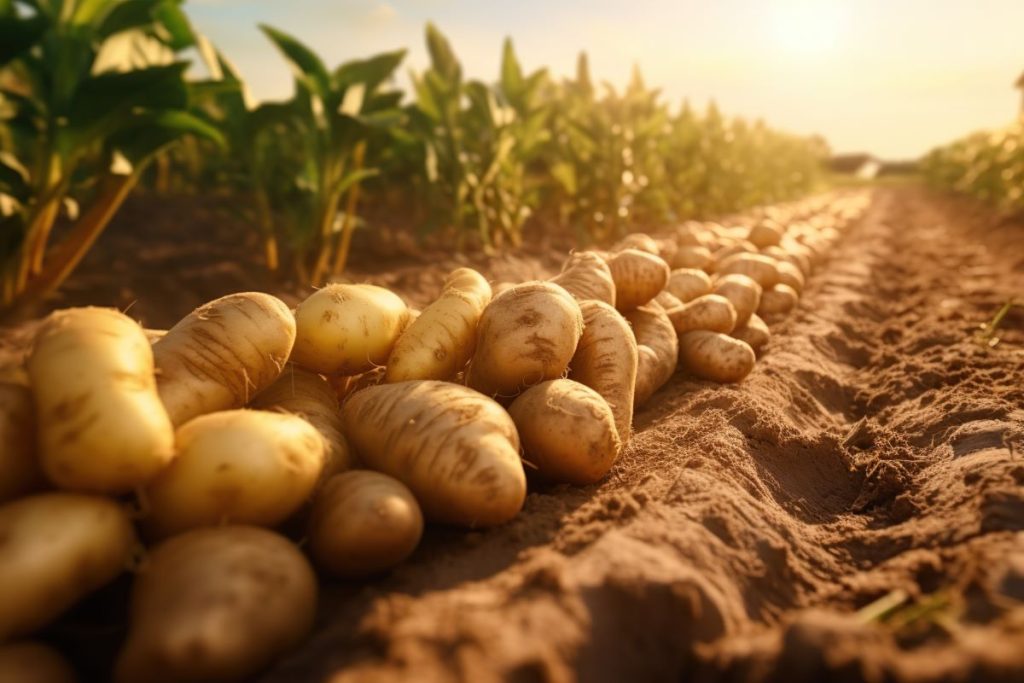

Part One
Many years ago, in a village called Mucho Cilindro in a far off land, there lived a small group of potato farmers. These guys were essentially subsistence farmers and happy enough with their lot, especially since they’d managed to create their own potato variety a few years earlier. For a long time, they’d grown a variety that originated a far off land. But now they’d developed their own potato with all the qualities that were enjoyed and prized in their province.
One day, in the next village, named Due Litri, another group of farmers was keen to differentiate themselves from the potato farmers. Some of them were a little upset that the potato famers in Mucho Cilindro were dominating the local market with their produce. So the good burghers of Due Litri decided to diversify into growing quinoa in the hope that they could convince the population to eat quinoa instead of potatoes.
For several years, a food war raged in the country as each group of farmers went up against each other in the markets across the land and spruiked their respective crops.
Despite the veracity of each side when pushing their barrows, there were actually one or two famers who tried growing both crops and were happy to set up stalls on both sides of the road at the various produce fairs where both villages were represented. As was to be expected, some of the older potato farmers from Mucho Cilindro resented this and were quick to needle those with split loyalties.
It was during these times of division that a White Knight from another province entirely rode into Mucho Cilindro. He asked the farmers whether he could sit down with them and explain a plan he had to help them sell more potatoes.
Now, the White Knight wasn’t a potato famer himself. In fact, not only was he not a potato famer, but he also wasn’t a farmer at all. He was a new breed of professional spruiker, an industry that had only sprung up in the preceding couple of decades. His lack of knowledge was actually an advantage for him in many ways as he didn’t carry the baggage and history of the disappointments with crop failure, weather issues, and changing consumer tastes. He only saw the upside in the great qualities of a well-grown and well-presented potato.
And so, in the town hall of Mucho Cilindro, the White Knight famously addressed the potato farming collective of the village. He assured them that he could not only get rid of the threat posed by the quinoa farmers from Due Litri, but he could also expand their market for their particular variety of potato to levels they’d never dreamt of before.
The White Knight promised that he could make all the farmers of Mucho Cilindro rich. Of course, he also wanted his pound of flesh for doing so. And so he negotiated, for himself and his partners in the background, a deal with the potato farmers collectively for a share of their co-operative and the profits from that.
The potato famers rightly reasoned that they were better off with a smaller share of a bigger pie than controlling it all themselves. Unsurprisingly, along the way, the local government of the land decided that it also wanted a piece of the action.
Whilst everyone agreed to that initially, it wasn’t long before the White Knight and the farmers sent the civil servants on their way with a little bag of coins and a small stipend in order to keep their noses out of the affairs of the co-operative.
With the new structure of the co-operative secured, the White Knight set to work to bring down the quinoa farmers of Due Litri. His life was actually made a little easier by the waning interest in quinoa amongst the good citizens of the land.
In order to ensure that he wounded the quinoa farmers irreversibly, the White Knight decided to wage a battle over the best stall sites at the biggest market in the province that sat in the shadow of the biggest mountain in the region. Whilst this battle did last several years, it was quickly clear to most people that the revitalised taste amongst the population for potatoes was going to win the day.

Not only were the quinoa customers coming back to potatoes, an ever increasing number of new consumers were switching to potatoes from other crops entirely.
So, despite the quinoa farmers convincing the kings of the town, where the biggest market sat in the shadow of the mountain, to give them preferential sites and early access to the citizens, those kings soon realised the error of their ways and the potato won the day.
The potato market duly boomed and, within a couple of years, even the most hardened and resolved famers of Due Litri stopped growing quinoa. Most of the good ones switched to potatoes and enjoyed a share of the huge increase in potato consumption amongst the population.
The village of Due Litri was duly absorbed into the expanded municipality of Mucho Cilindro. It would be good to say that this integration went without a hitch. But unfortunately, it was to be many years before the community was truly as one and without division as the original potato farmers of Much Cilindro did have most of the best land with the best irrigation.
The professional advocates of the day were the only citizens who really profited from these arguments but in the end commonsense triumphed and peace prevailed.
Amazingly though, many years later, a few misguided farmers, led on by the local government, decided it was worth trying to grow quinoa again in the province as they’d heard tails from far afield of how successful it was in other lands. Unfortunately, they didn’t fully understand that the climatic conditions in those other lands were very different. They tried to re-establish the village of Due Litri, but today it languishes as an ever poorer relation to Mucho Cilindro, and, sadly, the farmers there lose their shirts each year.
And so, as the White Knight continued to successfully spruik, ensued a long period of prosperity amongst the fields and the markets of the land. Mucho Cilindro became recognised as not only a leader in potato production in its own province, but far and wide as word spread through the trade routes of the times.
In fact, such was the status of Mucho Cilindro, and the commercial opportunities available to the ever richer farmers, that some farmers from lands across the seas travelled to the village to buy local farms. That enabled older farmers to retire and enjoy life for a few years rather than just dying in the fields as they had in the past.
Ever bigger farmhouses were built, and beautiful carriages carried the wives and families of the biggest farmers around the village.
Of course, the White Knight and his partners also grew rich from the hard work of the famers, but those farmers didn’t resent this as they were also prospering.
Many of them reinvested some of their hard-earned monies into improved implements as well hiring farmhands to assist them. This in itself was a major departure from the habits of centuries whereby famers had traditionally done everything themselves. Since the Vatican was just a twinkle in a local builder’s eye, they had planted the seed, harvested the crop, sorted the potatoes and finally taken them to market themselves. Now times were a changing.
Whilst all this was going on, the civil servants were in the background sucking their teeth and bemoaning their stupidity in accepting the little bag of coins for their share of the co-operative. Not that anyone else cared.
But, like all fables, nothing was to last forever and there were headwinds to come for the famers of Mucho Cilindro.
Part 2 next week.





















Discussion about this post